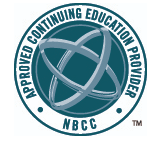The Department of Counseling, Family Therapy, and Higher Education is one of five departments in the Reich College of Education, offering programs that prepare students for human services positions in K-12 schools, colleges/universities, and mental health agencies.
Accreditation
The programs in Clinical Mental Health Counseling (M.A.) and Professional School Counseling (M.A.), are accredited by the Council for Accreditation of Counseling and Related Educational Programs (CACREP). Graduates are eligible to take the National Counselor Examination offered by the National Board for Certified Counselors, Inc. (NBCC) with successful completion qualifying the individual to become a National Certified Counselor.
 |  |
The Professional School Counseling program also is accredited by the Council for the Accreditation of Educator Preparation (CAEP) and approved by the North Carolina Department of Public Instruction.
The Marriage and Family Therapy program is accredited by the Commission on Accreditation for Marriage and Family Therapy Education (COAMFTE).

The Student Affairs Administration program complies with the Council for the Advancement of Standards in Higher Education (CAS) Guidelines for Master's Level Higher Education and Student Affairs Professional Preparation Programs (2019) and centers the ACPA/NASPA (2015, 2016) Competencies for Student Affairs Educators.
Continuing Education
Each year the department will sponsor various professional development workshops for graduate students as well as professional counselors and therapists. Continuing education credit will be made available for some of these workshops.
Appalachian State University's Department of Counseling, Family Therapy, and Higher Education has been approved by NBCC as an Approved Continuing Education Provider, ACEP No. 3001. Programs that do not qualify for NBCC credit are clearly identified. Appalachian State University's Department of Counseling, Family Therapy, and Higher Education is solely responsible for all aspects of the program.